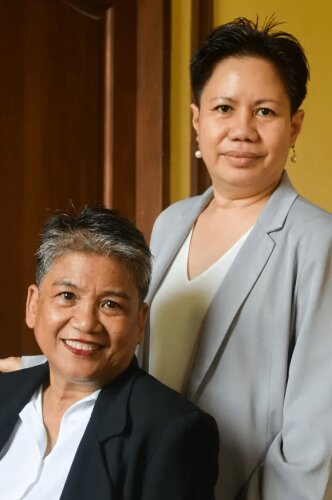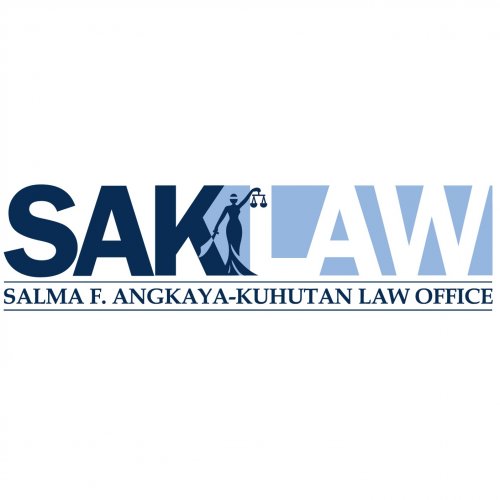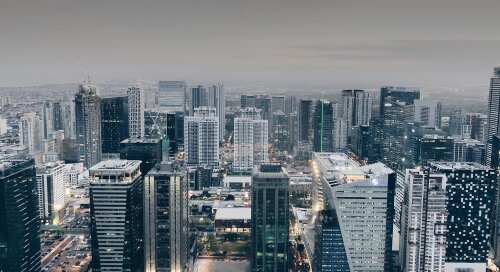Best Communications & Media Law Lawyers in Philippines
Share your needs with us, get contacted by law firms.
Free. Takes 2 min.
Or refine your search by selecting a city:
List of the best lawyers in Philippines
About Communications & Media Law in the Philippines
Communications & Media Law in the Philippines encompasses the regulatory framework governing telecommunications, broadcasting, and digital communications. This area of law addresses issues such as freedom of expression, media operations, privacy rights, content regulation, advertising, intellectual property, and telecommunications infrastructure. It aims to balance the interests of media enterprises, the government, and the public while promoting transparency, accountability, and accessibility to information.
Why You May Need a Lawyer
Individuals and organizations may require legal assistance in Communications & Media Law in numerous situations. Common scenarios include facing defamation charges, needing clarification on content rights and intellectual property, navigating complex telecommunications regulations, addressing privacy concerns in data handling, or understanding the implications of new media regulations. Lawyers specializing in this field can help interpret the law, provide representation in disputes, and guide compliance with regulatory requirements.
Local Laws Overview
Key local laws relevant to Communications & Media Law in the Philippines include:
- Republic Act No. 7925: The Public Telecommunications Policy Act of the Philippines: This law establishes a framework for the development and regulation of the telecommunications industry in the Philippines.
- Republic Act No. 10175: The Cybercrime Prevention Act of 2012: This act addresses online offenses, such as cyber libel and unlawful access to data.
- The Data Privacy Act of 2012: This law protects individuals' personal data in both government and private sector operations.
- The Broadcast Code of the Philippines: Issued by the Kapisanan ng mga Brodkaster ng Pilipinas (KBP), this sets ethical standards and guidelines for broadcast media.
- The Revised Penal Code: Contains provisions relevant to defamation, libel, and other offenses pertinent to communications.
Frequently Asked Questions
1. What is the primary regulatory body for telecommunications in the Philippines?
The National Telecommunications Commission (NTC) is the regulatory body overseeing telecommunications and broadcasting services in the Philippines.
2. How does the Philippines protect freedom of the press?
Article III, Section 4 of the Philippine Constitution guarantees freedom of speech and of the press. However, this is balanced with laws against libel and slander.
3. What constitutes cyber libel under Philippine law?
Cyber libel involves actions defined as libel in the Revised Penal Code (RPC) committed through a computer system or any similar means under the Cybercrime Prevention Act.
4. Can media content be censored in the Philippines?
The government may regulate or prohibit certain media content that promotes obscenity, sedition, or threatens national security, in line with laws balancing these concerns and free speech.
5. What steps must be taken to comply with the Data Privacy Act?
Organizations must appoint a Data Protection Officer, implement data protection measures, conduct privacy impact assessments, and report breaches within 72 hours to the National Privacy Commission.
6. Are bloggers and online content creators considered part of the media?
Yes, they fall under media law provisions, especially in aspects of online publishing and digital content that involve libel, privacy, and copyright issues.
7. What legal recourse is available if one's rights are infringed by a media entity?
Individuals can file complaints or civil suits for defamation, violations of privacy, or copyright infringement, among other possible claims under the law.
8. How are foreign media companies regulated in the Philippines?
Foreign media entities must comply with local laws governing broadcasting and telecommunications, including ownership restrictions and content guidelines.
9. Is there a government body responsible for media ethics in the Philippines?
The Philippine Press Institute and the Kapisanan ng mga Brodkaster ng Pilipinas provide ethics guidelines, but enforcement relies primarily on self-regulation and public accountability.
10. How can one report illegal content or communications violations?
The National Telecommunications Commission and the National Privacy Commission accept reports of violations, while the Philippine National Police and National Bureau of Investigation handle cybercrime issues.
Additional Resources
For additional guidance and information, the following resources may be useful:
- National Telecommunications Commission (NTC): The main agency for telecommunications policy and regulation.
- National Privacy Commission: Oversees data protection and privacy rights enforcement.
- Kapisanan ng mga Brodkaster ng Pilipinas (KBP): Provides guidelines and ethical standards for broadcasters.
- Philippine Press Institute: Offers resources and support for print media practitioners in the country.
Next Steps
If you require legal assistance in Communications & Media Law, consider the following steps:
- Identify the specific legal issue or area you need assistance with.
- Research and reach out to lawyers or law firms specializing in Communications & Media Law.
- Schedule a consultation to discuss your situation and explore potential legal actions or defenses.
- Prepare relevant documents and information that may support your case or help clarify your inquiry.
- Consider seeking advice from multiple professionals to gain a broader perspective before proceeding with legal actions.
Lawzana helps you find the best lawyers and law firms in Philippines through a curated and pre-screened list of qualified legal professionals. Our platform offers rankings and detailed profiles of attorneys and law firms, allowing you to compare based on practice areas, including Communications & Media Law, experience, and client feedback.
Each profile includes a description of the firm's areas of practice, client reviews, team members and partners, year of establishment, spoken languages, office locations, contact information, social media presence, and any published articles or resources. Most firms on our platform speak English and are experienced in both local and international legal matters.
Get a quote from top-rated law firms in Philippines — quickly, securely, and without unnecessary hassle.
Disclaimer:
The information provided on this page is for general informational purposes only and does not constitute legal advice. While we strive to ensure the accuracy and relevance of the content, legal information may change over time, and interpretations of the law can vary. You should always consult with a qualified legal professional for advice specific to your situation.
We disclaim all liability for actions taken or not taken based on the content of this page. If you believe any information is incorrect or outdated, please contact us, and we will review and update it where appropriate.
Browse communications & media law law firms by city in Philippines
Refine your search by selecting a city.















